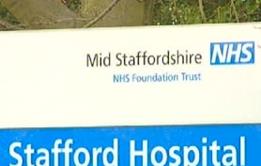Boardroom culture is changing, and the vast majority of provider chairs feel empowered to challenge their executives, says Carmel Gibbons of Odgers Berndtson
Never before has the health service held such a high public and political profile, and persuading high calibre leaders to join NHS boards as chairs and non-executive directors could potentially be more challenging now than ever. However, the initial results of this survey spell positive news for the NHS at a time when it desperately needs effective non-executive expertise.
Individuals currently in the sector clearly feel that they are in a position to make a difference and to drive improvements in healthcare, despite the concern that there could be “other Mid Staffordshires” out there. That 95 per cent of respondents feel empowered and enabled to oversee and challenge the work of executives represents definite progress in the sector and is likely to be representative of the significant improvements that NHS organisations have made in relation to integrated governance and performance management systems.
It is also linked to an evolving boardroom culture that promotes mentorship, support and healthy challenge on the part of non-executive directors.
‘Board members are not afraid of the increased accountabilities and legal liabilities’
The results suggest that current NHS board members are not generally afraid of the increased accountabilities and legal liabilities inherent in these roles – this is perhaps not surprising given that a number of individuals appointed to boards have themselves come from sectors where risk and regulation are a part of everyday life, like travel, industry and financial services.
Organisations need to recruit chairs and non-executive directors who live and breathe the values of the NHS and of a caring, compassionate environment. It is then vital that they utilise their expertise effectively and in ways that genuinely add value.
As search professionals, the message that we need to take to the market is that chairs and non-executives can, and do make a difference. Yes, the NHS is a large and complex machine but there is confidence that the systems and structures can work, provided that the right leadership and organisational culture is in place.
Carmel Gibbons is partner and head of healthcare practice at Odgers Berndtson
Trust chairs believe there are other Mid Staffs-type failures

“A small number” of trusts are failing in a similar way to Mid Staffordshire, HSJ survey finds
- 1
- 2
 Currently
reading
Currently
reading
Francis chairs survey: Odgers Berndtson's view































1 Readers' comment